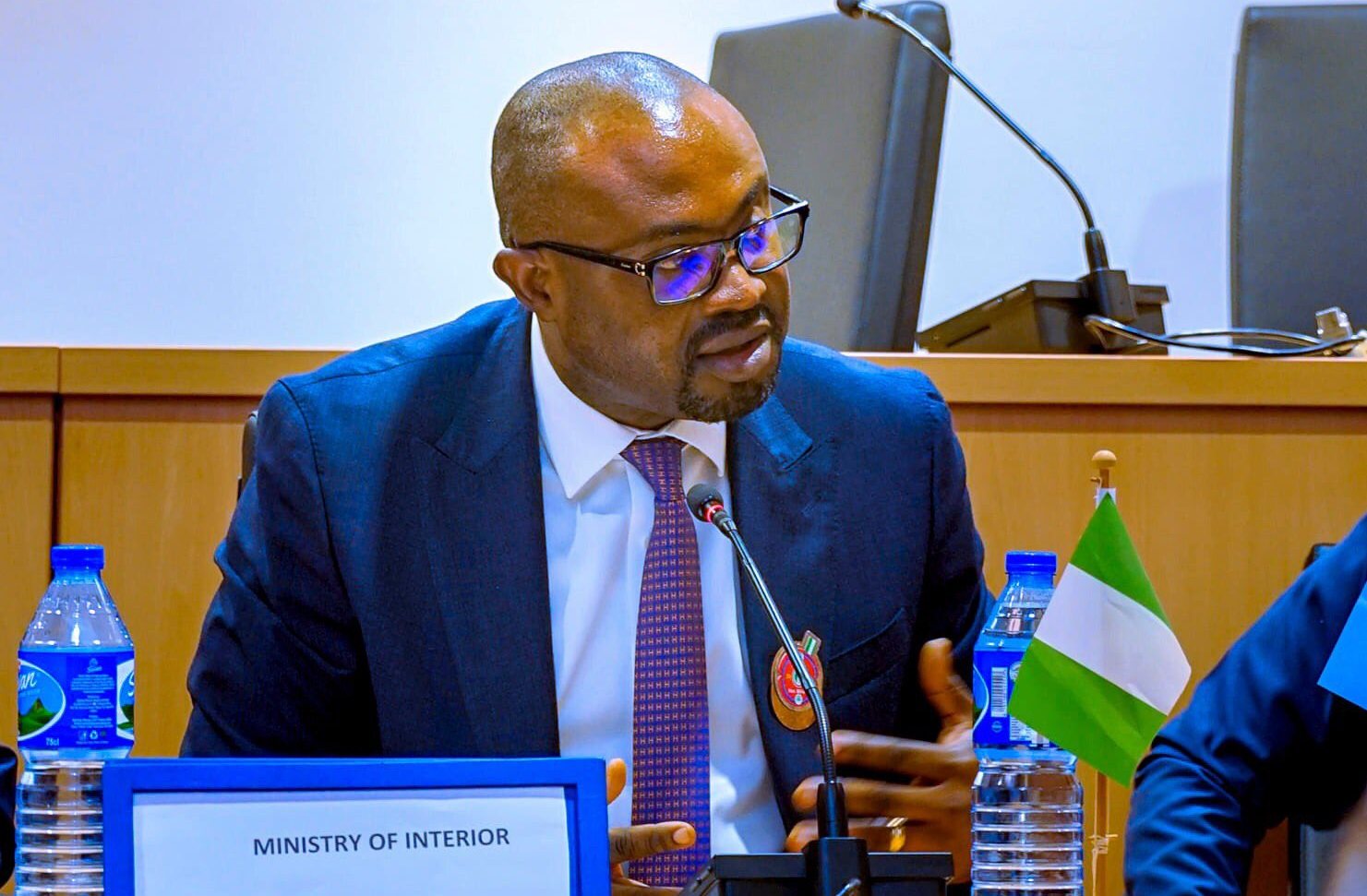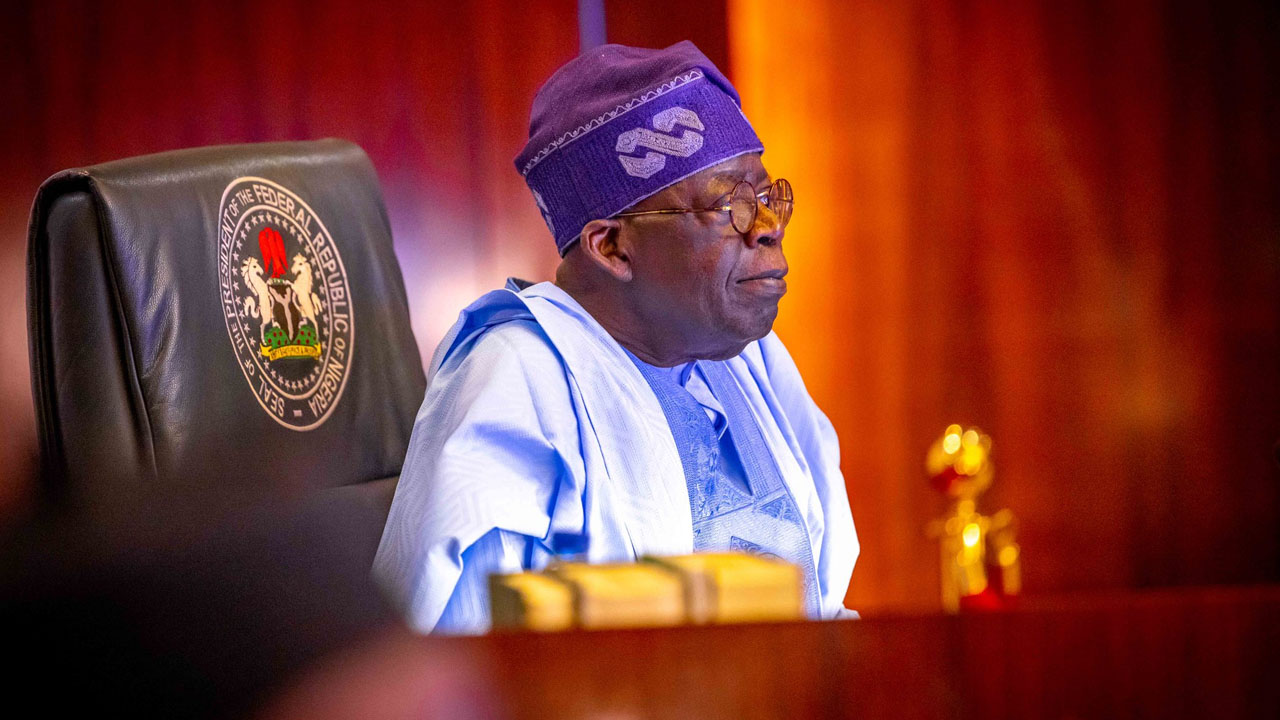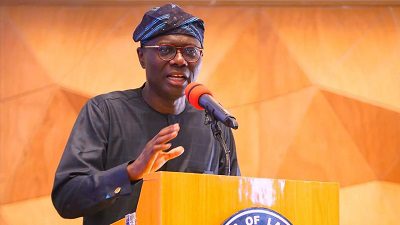Top Story
Ogun to launch CNG mass buses today
The Ogun State Government is set to launch Compres sed Natural Gas (CNG) powered Mass Transit Buses today, October 30, 2023.
The State Government had commenced the conversion of close to 2,000 buses as part of its strategies to cushion the effects of the removal of fuel subsidy and promote energy sustainability.
The Governor, Prince Dapo Abiodun had earlier disclosed that fueling stations for Compressed Natural Gas (CNG) would be positioned along bus routes across the state.
Speaking at this year’s Odun Omo Owu celebration with the theme “A New Dawn” held at Oba Adeleye Park, Sokori, Abeokuta North Local Government Area, the governor also said his administration has commenced the construction of a Dry Port at Kajola whose multiplying effects would further open up the State for investments.
Governor Abiodun who was the Special Guest of Honour at the occasion, said the conversation of the mass buses to CNG, was part of the palliative measures taken to lessen the effects of fuel subsidy removal, saying Ogun State remains the first in the country to record such achievement.
While highlighting the creation of the Ogun State Investment Promotion Agency (OGUNIPA) and the establishment of the Ogun State Business Environment Council (OGBEC), as some of the steps taken to boost investments and eliminate bureaucratic bottlenecks, Governor Abiodun declared that the State is the third in Internally Generated Revenue and the third largest economy in the country.
He said: “We have also invested heavily in security, thus making Ogun State one of the safest and most suitable States for investment to thrive in Nigeria. This has tremendously helped us to curtail pockets of violence across the state, especially the recent cult clashes at Sagamu.”
“Without any fear of contradiction, Kabiyesi and distinguished guests here present, I can boldly say that as at today, we have perhaps the most conducive environment and adequate infrastructural development models that ensure that Ogun State is the safest place to live, work and do business and we are proud as a Government on this feat.”
“We are happy because our commitment, initiatives, vision, dedication, resolute and our refusal to be distracted by treacherous politicians and backstabbers have continued to yield positive results, as existing businesses are thriving while new investments are being attracted in multitude into our dear State.”
The Governor who described the theme of the festival as apt, said the nation has witnessed a new dawn with the recent judgement of the Supreme Court that reaffirmed the election of President Bola Tinubu, noting that the nation would soon take her rightful position in the comity of nations as a result of the various policies introduced to reshaping the nation’s economy.
Abiodun who described the Odun Omo Owu celebration as a veritable platform to showcase the rich culture of the Owu people, noted that in Yoruba history, they have demonstrated bravery, strength of character and cognitive capacity, adding that the kingdom has produced notable Nigerians who have made meaningful impact locally and internationally.
The governor added: “Let me make it abundantly clear that the contemporary history of Yoruba race is completely inchoate without the role of the Owu Kingdom, especially in the early 19th century downward.”
“It is a thing of joy today that despite the temporary setback of those days, the people of Owu has proudly created a common cultural identity and distinct heritage within the Nigeria’s political space, especially in the South West.”
“Meanwhile, in every analysis and discuss about the people of Owu and their peculiar attributes, one trait continues to be uppermost and dominant, and that is the sense of Courage; you can not find any Owu man or woman without courage.”
In his remarks, the Olowu of Owu, Oba Saka Matemilola, commended Governor Abiodun for his love for culture and tradition, calling for the quick resolution of conflicts amongst sons and daughters Owu for the rapid development of Egbaland, Ogun State and the country as a whole
Top Story
Eidel-Kabir: FG declares Monday and Tuesday public holidays

The Federal Government has declared Monday 17 and Tuesday 18, as public holidays to mark this year’s Eid-el-Kabir celebration.
This is contained in a statement by the Permanent Secretary, Ministry of Interior, Dr Aishetu Ndayako, on Friday in Abuja.
She stated that the Minister of Interior, Dr Olubunmi Tunji-Ojo, who made the declaration on behalf of the Federal Government, congratulated all Muslim Ummah both at home and in the Diaspora.
He urged the Muslim Ummah to continue to imbibe the spirit of peace, kindness and sacrifice, as exemplified by Prophet Ibrahim (Peace be upon Him).
Tunji-Ojo also urged them to use the period to pray for unity, prosperity and the stability of the country.
The minister assured that the administration of President Bola Tinubu, was committed to safeguarding the lives and property of all Nigerians.
While wishing the Muslim Ummah a happy celebration, the minister advised all Nigerians to take responsibility in the resolve to hand over a prosperous Nigeria to our children.
Top Story
Tinubu to receive draft bill proposing regional govt system today


…Afenifere chieftain unveils proposal for 8-region Nigeria, interim boundaries
…Coalition advocates new constitution in Nigeria’s Governance overhaul blueprint
…Union proposes retaining 36 States as provinces with reduced powers
By Sodiq Adelakun
President Bola Tinubu is set to receive a draft bill today that seeks to reintroduce a regional system of government in Nigeria.
The proposed legislation, titled ‘A Bill for an Act to substitute the annexure to Decree 24 of 1999 with New Governance Model for the Federal Republic of Nigeria,’ was authored by Akin Fapohunda, a chieftain of the Yoruba socio-cultural association, Afenifere.
The bill aims to establish a new governance model for Nigeria, which would involve a return to a regional system of government. If passed, the new laws would be cited as “The Constitution of the Federal Republic of Nigeria New Governance Model for Nigeria Act 2024.”
Akin Fapohunda, the author of the draft bill proposing a return to a regional government system in Nigeria, has announced that the bill will be transmitted to President Bola Tinubu on Friday.
Recall that this comes despite the House of Representatives’ earlier disownment of the bill, with its spokesman, Akin Rotimi, and the Chairman of the Committee on Rules and Business, stating that it had not been listed for deliberation in the ongoing review of the 1999 Constitution.
“I’m submitting my letter (draft bill) today but I will wait for seven days before releasing it to the public,” he said
Also, Akin Fapohunda, representing the Coalition of Indigenous Ethnic Nationalities, has unveiled a proposal to divide the country into eight distinct geo-political regions, complete with interim boundaries.
Speaking to journalists, Fapohunda outlined the envisioned regions, with the southern region encompassing Akwa-Ibom, Bayelsa, and Cross Rivers States, along with other ethnic communities.
The South Eastern region is slated to include Abia, Anambra, Ebonyi, Enugu, and Imo States, while the Western region would comprise Lagos, Ogun, Ondo, Osun, Oyo, and Ekiti States, with additional inclusion of Yoruba-speaking populations in neighbouring regions.
The Mid-Western Region would be composed of Edo and Delta States, potentially incorporating the Anioma people, while the Eastern Middle Belt Region would encompass several northern and central states.
The Western Middle Belt Region comprises Southern Kebbi, parts of Kwara and Niger States while the North Eastern Region will be made up of parts of Borno, Gombe, Bauchi, Jigawa, and Yobe States.
The North Western Region, according to the Afenifere chieftain, comprises Kaduna, parts of Kebbi, Kano, Katsina, Sokoto and Zamfara States.
Fapohunda said the coalition envisaged a two-tier government, federal and regions, adding that the latter would be at liberty to manage her affairs, “including the creation of sub-entities, based on the stipulations that are agreed upon and embedded in their respective constitutions.”
In its proposed governance stipulations, CIEN stated that “In the quest for re-configuration and downsizing, an option to consider might be to retain the present boundaries of the 36 States, as would have been adjusted, but to creatively downgrade the paraphernalia of political administration as follows:
“To introduce a new regional government framework with executive and legislative functions and bodies with the headship title of Premier.
“In the new dispensation, the present States (for example the six in the Western region) would be converted to provinces. Governance at this level shall be by Provincial Councils that integrate executive and legislative functions, with Chairman and Support Specialist Administrative Officers. The regions shall be at liberty to create provinces, subject to viability and self-sustainability.
“The present Local Government Areas are to be transformed into divisions, with divisional managers and specialist administrative officers; to operate as socio-economic development institutions. The new provinces shall also be at liberty to create divisions, subject to viability and self-sustainability.”
In the same vein, the Coalition of Indigenous Ethnic Nationalities has put forward a proposal for a new constitution, emphasising regional autonomy and decentralisation of federal power.
Among the key novelties outlined in the proposal is the freedom granted to regions to create, merge, or reconfigure their sub-political units without external interference, fostering a tailored governance approach to suit local circumstances.
The coalition envisions a streamlined public administration, with regions aiming to reduce the cost of civil service to a fraction of generated revenue.
Central to the proposed constitutional framework is the establishment of a unicameral federal legislature, wherein members are elected directly by their respective regions to represent their interests in the national capital, Abuja.
Furthermore, the coalition advocates for a leaner federal government, proposing a maximum of nine ministries and ministers, drawing parallels with the streamlined cabinet of the United States.
The return to a parliamentary mode of government, with built-in statutory rotation of regional leadership, is also highlighted as a crucial element in ensuring equitable representation and governance across the country.
“Regions and sub-regional entities are to be reconfigured such as would reduce the cost of public and civil service administration to less than 20 to 30 percent of generated revenue.
“In drafting their Constitutions, the peoples of the respective regional territories will take a cue and also dismantle any arrangement or configuration that will favour the politicians and the political class; with a focus on freeing resources for true development.
“A uni-camera federal legislature comprising members that are elected at the discretion of the regions for which they would be representatives at Abuja.
“Decentralisation of federal power in favour of not more than 10 regions on which there is a general national consensus, rather than the presently unwieldy number of 36 States. These old States are inconsequential indeed in being a viable unit of a truly federal system of government.”
Top Story
Lagos GDP grew by 50% in five years under my administration — Sanwo-Olu


By Sodiq Adelakun
The Lagos State Governor, Babajide Sanwo-Olu, has said the Gross Domestic Product of Lagos, in the last five years under his administration, had risen by almost 50 percent, surpassing the size of the GDPs of over 40 African countries.
The responsible factors, the governor said, could be linked to the unending effort by his administration to improve the Ease of Doing Business and the decision to leverage the technology and entrepreneurial abilities of its population for economic activities.
Sanwo-Olu said Lagos had grown from being a state in deficit in the military era to becoming a hub for investment and technological advancements.
The governor stated this while delivering the closing speech at the ongoing 3rd AfriCaribbean Trade and Investment Forum (ACTIF 2024) in Nassau on the theme: “Global Africa, Global Lagos: The Role of Sub-Nationals in Driving the Global African Agenda.”
“Lagos is an example of a unique African success story, shaped by an interesting mix of advantages and challenges. It is the smallest of Nigeria’s 36 States, yet is responsible for more than a third of Nigeria’s entire GDP.
“Lagos has grown to have a GDP that is greater than the GDPs of all but seven African countries. In the last five years, under my leadership, we have seen an almost 50 per cent increase in our GDP,” Sanwo-Olu was quoted as saying in a statement on Thursday by his spokesman, Gboyega Akosile.
“Lagos presents a significant context on how sub-national governments are vital in writing new stories of development and advancing the economic agenda of the continent. I am proud to say that we in Lagos State have indeed mastered the art and science of Public-Private Partnerships. Having pioneered this private sector-led development in Lagos, we are now exporting that template to other States across the country.
“Our growth stories speak to the importance of African solutions and African capacity for tackling African problems. As we work towards accomplishing our aspirations, it is clear that sub-sovereign entities, such as cities, states, provinces, regions, and municipalities, can be instrumental in translating African countries’ high-level goals into tangible outcomes. It is at this sub-national level that a lot of the most remarkable reforms and transformations are playing out,” He reiterated.






